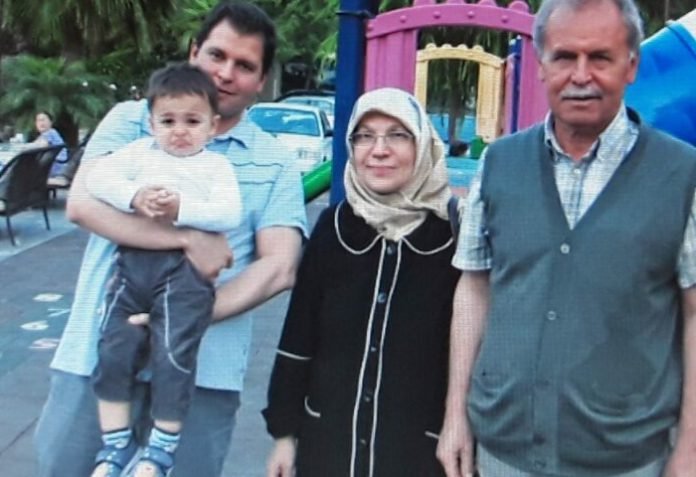The parents of Yusuf Bilge Tunç, a former civil servant who went missing under suspicious circumstances, have said in an interview that they are still seeking news about their son four years later, he Bold Medya news website reported on Wednesday.
“It’s unbearable for a mother,” said Fatma Tunç, Yusuf Bilge Tunç’s mother. “I just want news about my child.”
Speaking to KHK TV, a YouTube platform established by the victims of a widespread post-coup purge after 2016, Tunç’s parents said the prosecutors have failed to obtain camera footage or phone signals to help locate him.
“If a person goes missing in the middle of the capital city and the state cannot find them, there’s no longer a state to speak of,” said Mustafa Tunç, the father.
A former employee of the Ministry of Defense, Yusuf Bilge Tunç was one of thousands of civil servants who were summarily removed from their positions en masse in the aftermath of a failed military coup in July 2016.
A detention warrant was later issued for him due to his alleged links to the faith-based Gülen movement, a group that Turkey’s government accuses of masterminding the abortive putsch.
Tunç did not turn himself in and began working in the private sector in Ankara. After he was reported missing in August 2019, his car was located near a wholesale market in the Turkish capital. Despite the family’s request, the police declined to conduct a crime scene investigation on the vehicle.
Scores of people, mostly those investigated or tried for alleged Gülen links, went missing under suspicious circumstances after the attempted coup. Family members seeking to learn of their whereabouts often complained about a perceived reluctance to investigate on the part of the police and the prosecutors.
Some of the disappeared later turned up in police custody. Family members said they were physically and mentally weakened and unwilling to talk about where they had been. They were also willing to sign self-incriminating statements and to drop complaints that were filed on their behalf with the European Court of Human Rights or UN bodies.
The suspected abductions were interpreted by human rights groups as the return of enforced disappearances to the country, where hundreds of civilians had also disappeared in police custody in the 1980s and 1990s. The Saturday Mothers, a group of activists comprising family members of victims, have been holding weekly protest vigils in İstanbul seeking to learn the fate of their loved ones since 1995.
Turkish President Recep Tayyip Erdoğan has been targeting followers of the Gülen movement, inspired by Turkish Muslim cleric Fethullah Gülen, since the 2013 corruption investigations, which implicated then-prime minister Erdoğan, his family members and his inner circle.
Dismissing the investigations as a Gülenist coup and conspiracy against his government, Erdoğan designated the movement as a terrorist organization and began to target its members. He intensified the crackdown on the movement following the abortive putsch in 2016 that he accused Gülen of masterminding. Gülen and the movement strongly deny involvement in the coup attempt or any terrorist activity.
Following the coup attempt, the Turkish government declared a state of emergency and carried out a massive purge of state institutions under the pretext of an anti-coup fight. More than 130,000 civil servants, including 4,156 judges and prosecutors, as well as 24,706 members of the armed forces were summarily removed from their jobs for alleged membership in or relationships with “terrorist organizations” by emergency decree-laws subject to neither judicial nor parliamentary scrutiny.
In addition to the thousands who were jailed, scores of other Gülen movement followers had to flee Turkey to avoid the government crackdown.
















